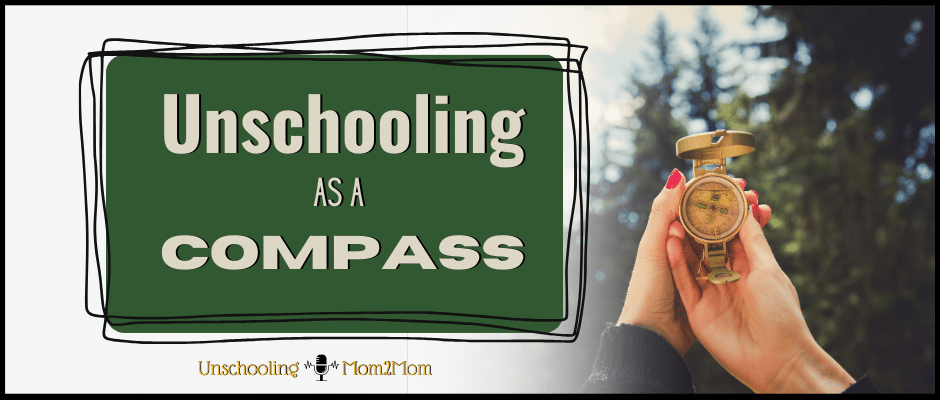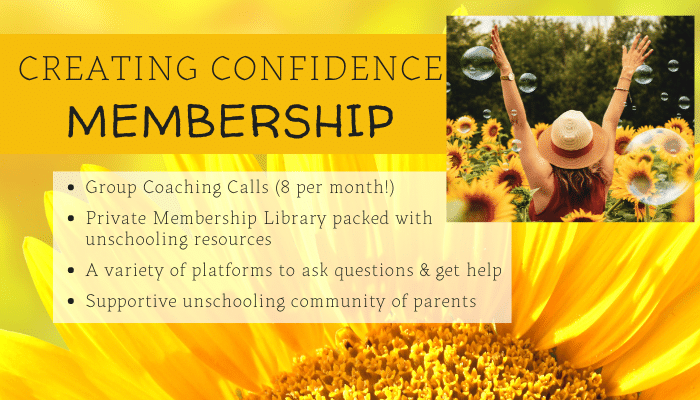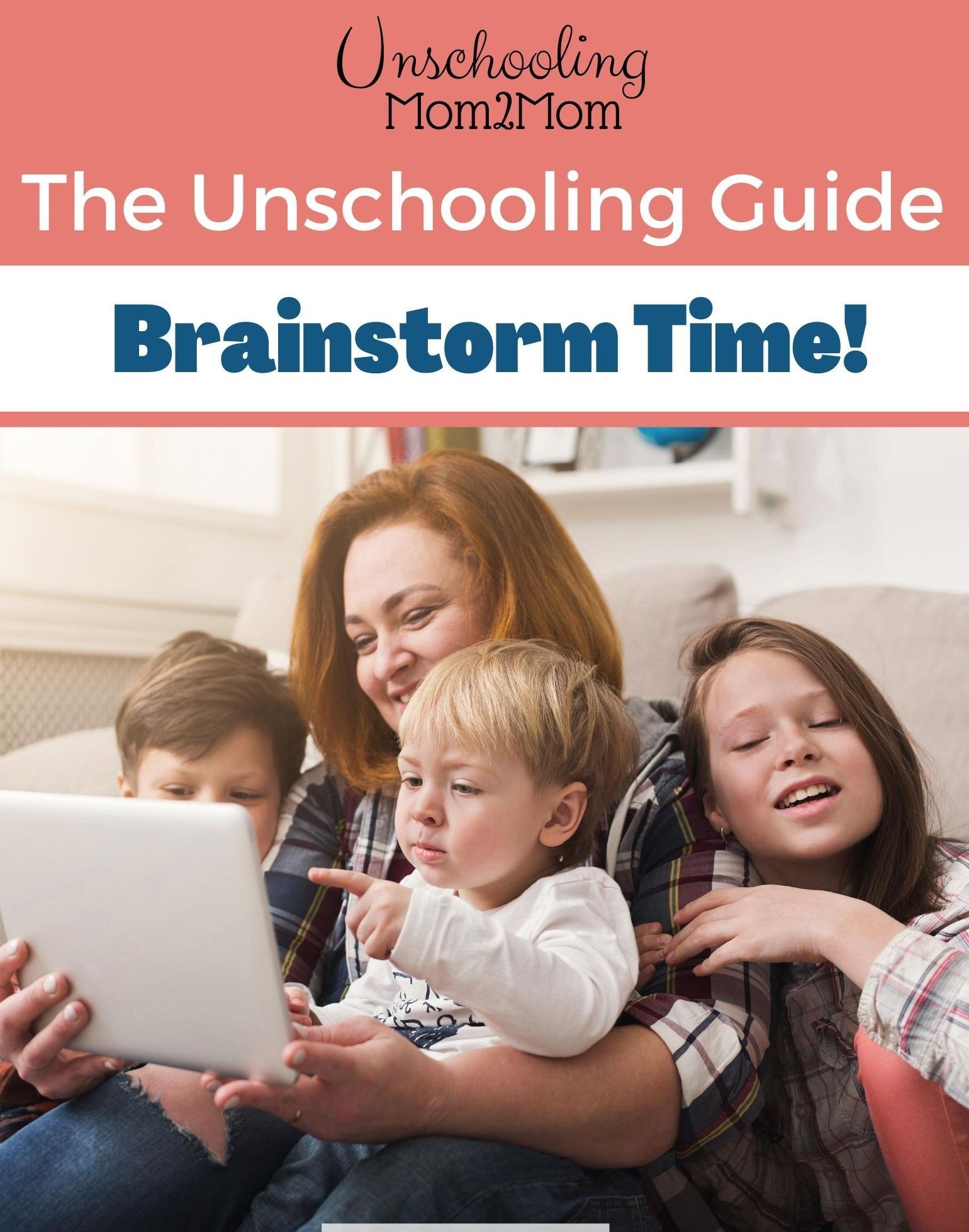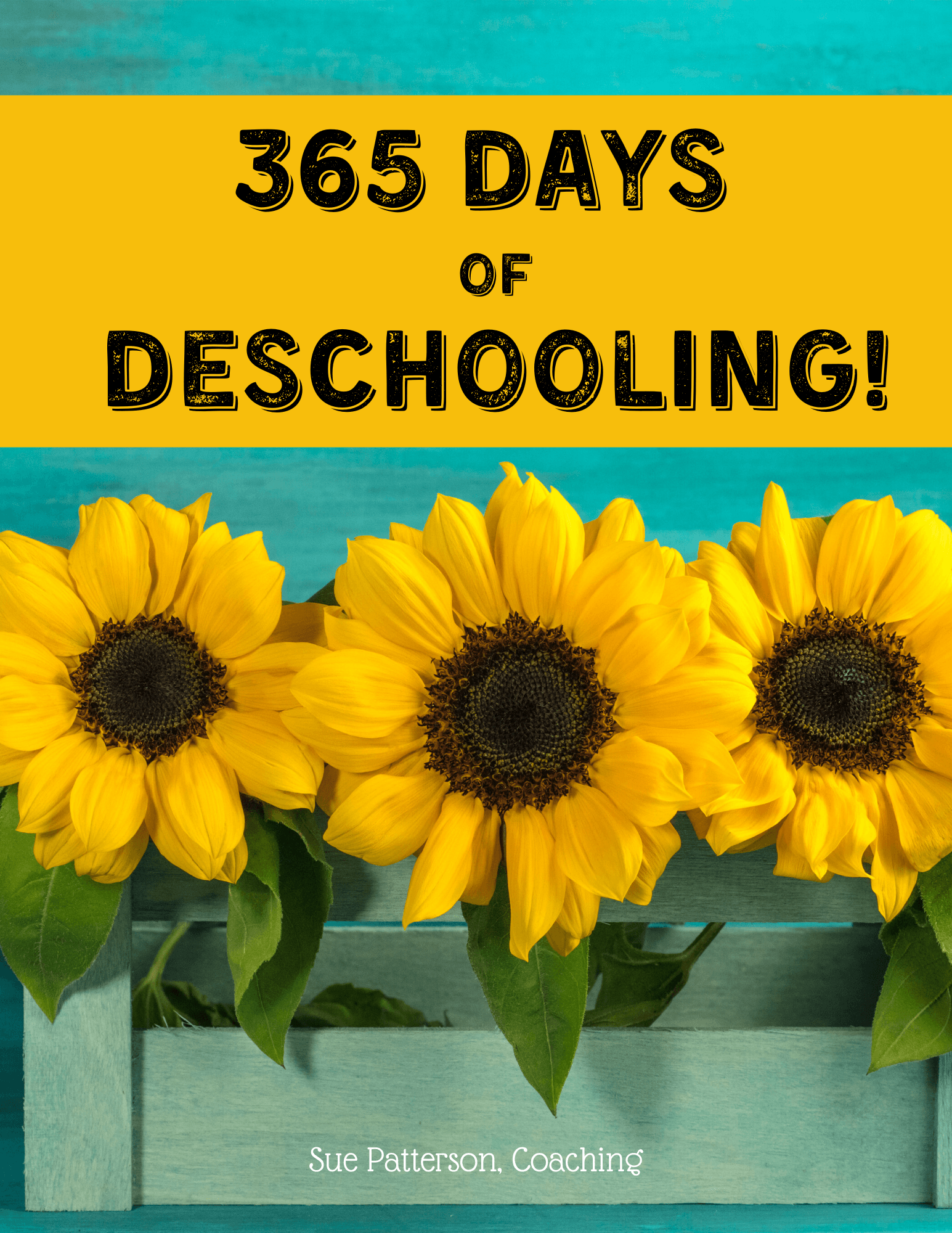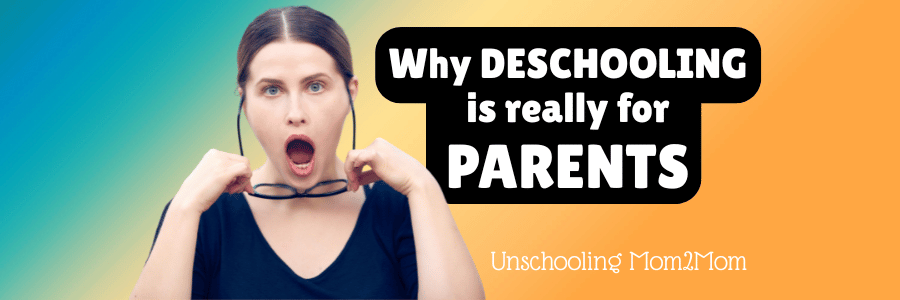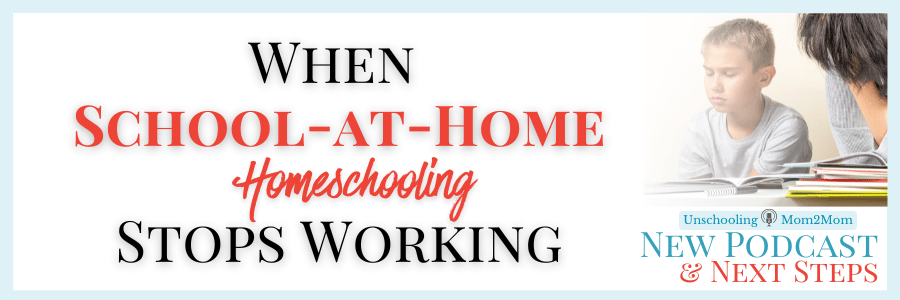Unschooling as a Compass
Scroll down for those 10 Next Steps!
Don't get caught up in the conversations about liking the word Unschooling - or not.
It really doesn’t matter whether we like it or not, whether we don’t do labels or not, whether we wish there was a different word to describe what we do - or not.

Unschooling is one of those words where people have described it a variety of ways and some of those ways may not fit your family. Then you think,
“Well, unschooling’s not for us!”
But really, that may have been only that mom’s interpretation of what unschooling means for her family.
And if you had bumped into another mom with a different interpretation - maybe their kids were more like yours, or their approach to parenting or housekeeping or learning or COMMUNICATING was more in sync with you - then you’d have thought... "ok, this unschooling thing COULD work for us."
That’s why I want you to use the word Unschooling as your Compass.
Let it help you find ways to see learning differently.
Remember how we refer to school, and say, “One Size Does Not Fit All”?
The same applies to unschooling!
One size does not fit all.
But what DOES fit all is the principles behind it.
The SIMPLE CONCEPT that Individualizing works.
Individualizing the learning, the parenting, the whole thing.
The One Size Concept is Simply the Entry point.
Once we walk through that door, all those unschooling principles are what help you see how it does work for your family - your INDIVIDUAL family!
You have a kid that loves the outdoors but hates Journaling about it in Nature Guides or lap books, that’s all good data. Not an uncooperative kid. That’s a kid who is sharing how they like to move through the world.
So then you use your Unschooling Compass to see those unschooling principles or concepts of individualizing and use THAT data.

It's that unschooling principle again:
Start with the Learner
(instead of see how you can get that Wild Child into the Box)
Because that’s what that is - and you don't really want to do that.
When you look at that child climbing the tree, throwing his face up into the sun, grasping for a higher branch, noticing the bug crawling beside him, peeking into that nest - and instead of seeing the science, the problem-solving, the confidence-building - you focus on,
“But he doesn’t even know the basics.”
It’s always The Basics, right?
Basics of Math, or
Reading, or
Writing.
So he can’t do his times tables at 10... or read chapter books yet, or his penmanship is... atrocious.
It’s really ok. He has time. He doesn’t have to do it while he’s still playing around with being a kid.
He’s busy building HIS very Individualized pile of knowledge.
And because he’s a human and not a computer you can’t slide his hair back and see what’s going on in his brain. HE may not even know. But his brain does. Because if you remember nothing else, remember this:
Humans are hard-wired to learn.
They don’t need someone else pushing or prodding to make them do it. They don’t need to learn something because it’s easier to teach all the 8 year olds one thing - whether they’re interested or not - so we can move on to the next lesson together.
Even if you’re not unschooling, that seems like a weird thing, right? An effort to keep the process running smoothly being prioritized over the interests of the learner?
I know, it’s easier to have a plan and check off the boxes.
And then WE feel good as the teacher or facilitator.
But what about the learner? Maybe they thought it was ok. Maybe they totally resisted.
But one thing they DID learn, they have to shelve their interests until you have had your fill of this teaching thing you want to do.
I don’t think that’s the message you want to convey.
Wouldn’t it better to have different priorities?
...like the relationship between you and the kids,
...or the idea that the world is full of so many interesting things to learn about.
And then start with your little learner’s curiosities - not what YOU think is interesting or that they need to know.
I don’t mean you never introduce other things to your child, but you choose wisely. You don’t take a kid who really prefers air conditioning out to identify tree leaves on a 3 hour hike.
Sure, maybe that sounds like fun to you - but, this is about the Learner, remember?

Interest-Adjacent
So when you bring other ideas to them, think of it as Interest-adjacent.
They like a particular something, what’s something KIND OF like that?
It’s a bit like throwing spaghetti at the wall. And if the spaghetti doesn’t stick, we don’t hang our head in disappointment, we try again in a little bit.
So try not to get your ego all involved over whether they like your suggestions.
Think of it as just data. Now you know. And remember, there are all kinds of reasons your metaphorical spaghetti may not have stuck...
- Maybe it was the time of day,
- maybe they just got into an argument with their sister,
- maybe they were hungry,
- maybe they can’t visualize what you’re suggesting.
....all reasons for you to consider for the next suggestion.

I know some of you are still a little worried about focusing so much on enjoyment. Maybe you did your 2 weeks of
deschooling and now you’re ready to have them buckle down. 😉
How can this unschooling thing work
if they just want to play?
I’ll come back to this.
Are You Feeling a Little Isolated?
I really want you to get the support you need to be successful. My Creating Confidence Membership Group is SUCH a great group of parents sharing ideas and brainstorming, 2 group coaching calls a week, all the Unschooling guides and ebooks are included.
Plus, this past weekend, I was adding up all the PDFs and worksheets and videos and podcasts I have exclusively for members - over 500 resources! You’re gonna want to do this! It all comes down to about $12/week. That’s a great deal, if you ask me.
I’m there, helping everyone figure out what the next steps could be... so join us!
Still hesitating about this unschooling approach?
Maybe you’re still thinking in some schoolish terms... maybe you’re worried about learning to read or getting into college? Do you’re pushing a little more on academics than either you or your child are enjoying.
Maybe you’re thinking,
“It’s not about enjoyment. I’m being a good mom. I’m helping them do what they NEED to do.”
So your Unschooling Compass would invite you to ask yourself,
“Do they have to?”
“Who says they need to?”
"Do you really use some of those things you’re pushing, in your real adult life?”
"Could they do it later when their brain is more mature or they’re not distracted with something else?”
Or even,
"What’s your real motivation for this?"
Do you worry that he’s 8 and not reading some book you think
"all 8 year olds should be able to read?"
Do you follow a bunch of people on Instagram who post pictures of wonderfully compliant kids - and you’re afraid someone is going to find out that YOUR kids are not doing that at all.
And then, does that fear grow in your brain?
And the self-criticism begins...
“You’re not a good enough mom."
"You’re not creative enough to help them."
"You’re too angry and frustrated all the time.”

That’s when I want you to pull out your
Unschooling Compass! 🧭
It will show you your next steps.
Not the steps for the next 6 years, but your very NEXT step.
That’s how you step toward Individualizing.
Otherwise, you’re stepping toward getting back in the box.
10 NEXT STEPS
for connecting and individualizing the learning
- If you’re inside, maybe the next step is to go outside.
- Change the scenery. Even just change to another room.
- Make a snack platter.
- Refresh the water bottle.
- Put on some upbeat music.
- Notice what your child would really like to do right now.
- Pull out your phone and take a selfie of you and them together.
- Remind them that you love them.
- Step away from the power struggle.
- Think of it as a recalibrating moment.
and then, let's Level UP...
Put YOURSELF on a Scavenger Hunt
Maybe what you need to do is create a Scavenger Hunt for YOURSELF!
What subjects do you see weaving throughout their interests and playtime?
Challenge yourself to find even more.
Sometimes it’s about shifting away from the fear of doing this wrong or being judged,
and noticing that the world is providing what you need.
You just have to notice.
2 Options LOADED with Unschooling Ideas!
If you like the idea of unschooling, but you’re not coming up with creative things to do - I have you covered!
Let's create a new habit of Brainstorming WITH the Kids! This Unschooling Guide: Brainstorm Time is perfect to use
How about 365 Ideas to pick from? Here's the Guide offering a suggestion for every day of the year!
Remember, all the Guides are INCLUDED in your Membership benefits! You can always join us!
I know it’s scary to step away from what’s familiar. But you have a compass - an Unschooling Compass.🧭
It will help you see what YOU need to do next - not what others are doing.
That whole comparison thing - leftovers from school. Not important - really.
And it will really take you off your course.
Because that’s what Individualizing is all about:
Using YOUR compass to figure out the path you and YOUR kids need to be on.
You can do it! I’m rooting for you!
Reach out if you need support and I’ll be back again next week here on the Unschooling Mom2Mom Podcast.
Happy Unschooling.


